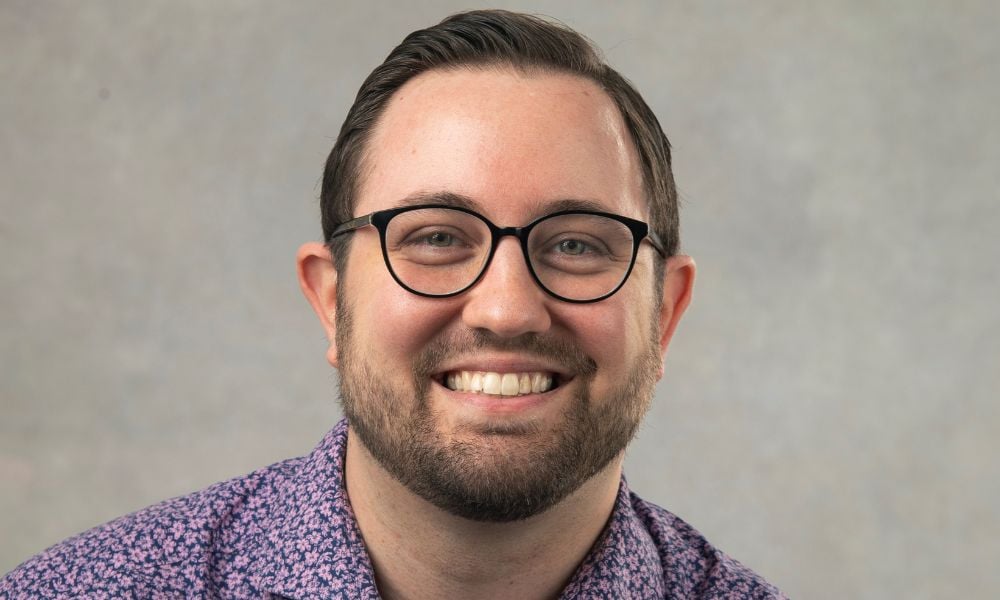
'We need to demonstrate good ethics and standards as an example'

Having come up through HR via his own entrepreneurial ambition, Christian Malleck, Head of Human Resources for The Canadian Centre for Christian Charities (CCCC), had to learn “the hard way.” But Malleck told HRD it allowed him to craft his own career path and learning.
After college, Malleck decided he wanted to work in a field helping people, but health care education wasn’t ideal for the philosophy grad. Human resources seemed like the next-best thing. His mother had worked in HR for 20 years, at Manulife and as an independent coach, and he decided to follow in her footsteps.
But it wasn’t easy at first, and Malleck tapped into his entrepreneurial upbringing to find his way into the industry, his own way.
“I did my own little consulting. In order to get it on my resume, I went to some local cafes, and I basically said, ‘Hey, you don't have any health and safety. Can I do all your health and safety for like 300 bucks and put you on my resume?’ I found little jobs so that I could put on my resume that I did HR,” Malleck told HRD. “And then I got a job working at Ten Thousand Villages, which was my first office job. So right off the bat, I got experience choosing the work I wanted to do, focusing in the areas I wanted to focus on, and also just having the authority and leadership to take some of these things on.”
Ten Thousand Villages gave Malleck a taste of doing “meaningful work” – an experience he has carried into his present role. “What we were doing was not trying to get rich, but trying to do ethical work in the world. It was wonderful.”
Working in HR in a Christian organization has similar values, he shared. Although the role is the same as any secular role, there are some significant differences at the very core, including embodying the values of CCCC’s mission.
“It's not exclusive, but there's this whole mentality of the ethics of how we work, and how the love that we show is important and needs to be integrated. So I'm often talking to our members that are doing HR and saying, ‘We need to weave our faith into our practice, and demonstrate that by treating people really well,’” Malleck explained.
This includes paying people what they’re worth.
“We need to not assume people are going to volunteer their time because our mission is so important. We need to demonstrate good ethics and standards as an example – so I think that Christian organizations are always trying to do the right thing.”
One of the most interesting parts of his role, Malleck told HRD, is learning the intricacies around hiring for Christian organizations, and then sharing those insights with those he consults with at CCCC.
CCCC runs an HR consulting service which Malleck heads. The service assists Christian ministries that don’t have HR personnel, and a large part of that is helping to design hiring and onboarding; when hiring with particular spiritual requirements, it can be an intimidating matter.
“They need to hire Christians whose faith matches up to them, so there's a lot to know around the legality of ‘Can you require someone to have a certain faith?’” Malleck said. “People get worried, but I do reassure them that as long as you've done the assessment, and it's legitimate, then you're allowed to discriminate in your hiring. You can be selective.”
In addition to a “statement of faith”, incoming employees to a Christian organization may also be required to sign a “lifestyle agreement" that says, “I'm not going to have premarital sex, I'm not going to drink in excess’, these sorts of things,” he said.
“Because, as most people know, there's obviously human rights codes that would protect you against this. But for a lot of roles where Christian faith is really important, where they're serving the Christian community, or like a pastor, where it represents the organization, there's a bona fide occupational requirement.”
Some Christian organizations initially want to only hire Christians for all of their positions, but such “blanket statements” aren’t legal in Canada. So Malleck has designed his own assessment.
“I'm really focused on people doing it right. You have to be very thorough and look at every position. So I've become very knowledgeable in how to do that. I advise people on how to make policies, how to think about it. You can hire Christians for a bunch of roles, but maybe the janitor, you can't really justify being discriminatory for that kind of thing.
“So that's one aspect that I have found a lot of HR professionals know nothing about. It doesn't come up unless you're in a religious field.”